Chess club presidents and executive team members represent dedicated student leaders who coordinate one of the most intellectually enriching after-school activities available in high schools today. These students organize weekly meetings, coordinate tournaments, mentor beginning players, manage club finances, communicate with faculty advisors, and build inclusive communities where strategic thinking and respectful competition flourish. Despite the significant leadership development and organizational skills these roles require, chess club officers often receive minimal recognition compared to athletic team captains or other high-profile student leaders.
Traditional approaches to recognizing chess club leadership typically consist of brief announcements during club meetings, mentions in yearbook club pages, or informal appreciation from advisors and members. Meanwhile, the officers who dedicate hours to tournament logistics, recruit new members, coordinate travel to competitions, and create welcoming environments for players of all skill levels go largely unrecognized by broader school communities. This lack of visibility diminishes both the perceived value of chess club participation and the leadership accomplishments of students who excel in this intellectual pursuit.
This comprehensive guide explores how schools can transform chess club recognition through systematic approaches that honor presidents, executive team members, and all participants while demonstrating institutional commitment to celebrating diverse forms of student leadership and intellectual achievement beyond traditional athletics and academics alone.
Effective recognition of chess club leadership serves multiple essential purposes: validating the significant time and effort officers invest in building successful programs, inspiring younger students to pursue chess and leadership opportunities, demonstrating that intellectual pursuits receive institutional celebration, strengthening recruitment by showcasing club accomplishments, and preserving the legacy of student leaders who developed organizational and strategic skills transferable to college and career success.
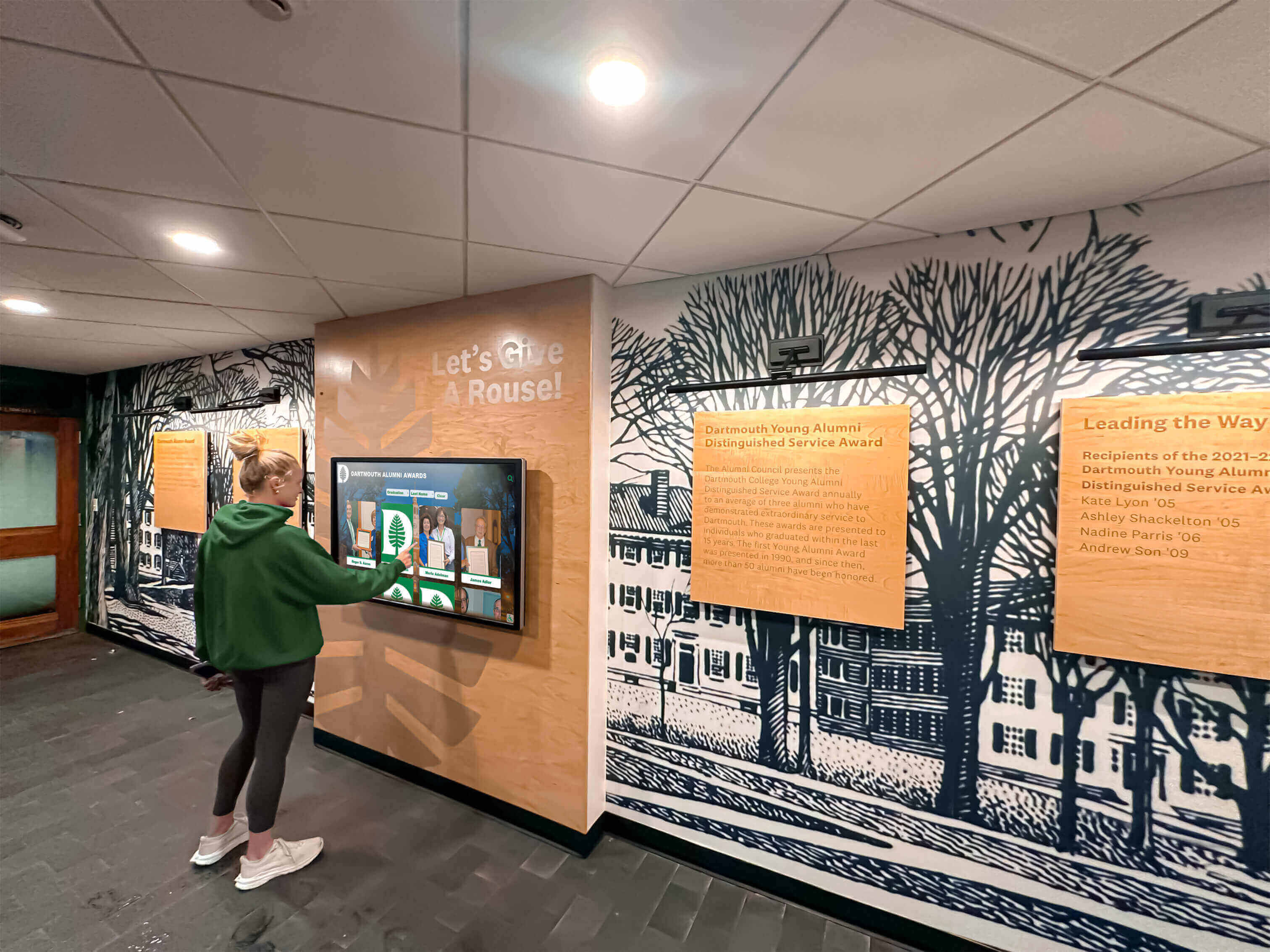
Modern digital displays make exploring chess club leadership and achievements accessible and engaging for the entire school community
Understanding Chess Club Leadership Structures
Before implementing recognition programs, schools benefit from understanding typical chess club organizational structures and the significant responsibilities student officers shoulder throughout their tenure.
Standard Chess Club Executive Positions
Most high school chess clubs operate with executive teams consisting of multiple officer positions, each with distinct responsibilities requiring sustained commitment and organizational capability.
President The club president serves as primary coordinator and representative, typically responsible for setting meeting agendas and facilitating productive sessions, representing the club to school administration and external organizations, coordinating with faculty advisors on club priorities and logistics, making tie-breaking decisions on club policies and activities, and serving as primary contact for tournament directors and other schools. Presidents must balance competitive goals with inclusive membership, manage interpersonal dynamics within diverse skill levels, and maintain enthusiasm throughout the academic year while often competing themselves.
Vice President Vice presidents support presidential functions while typically assuming specific operational responsibilities including leading meetings when presidents are unavailable, coordinating tournament logistics and travel arrangements, managing communication between officers and general membership, overseeing special events like simultaneous exhibitions or guest speakers, and preparing to assume presidential responsibilities in subsequent years. This role develops backup leadership ensuring organizational continuity while providing substantial experience in club operations.
Secretary Secretaries maintain essential documentation and communication including recording meeting minutes documenting decisions and discussions, maintaining membership rosters with contact information and skill levels, coordinating communication through email, social media, or school platforms, tracking attendance and participation for planning purposes, and documenting club history preserving accomplishments and milestones. Strong organizational skills and attention to detail make secretaries invaluable for sustained club operation.
Treasurer Treasurers manage financial resources and fundraising including maintaining club budget records tracking income and expenses, coordinating fundraising activities to support tournament travel, processing tournament entry fee payments and reimbursements, purchasing equipment like clocks, boards, and instructional materials, and preparing financial reports for advisors and school administration. Financial responsibility develops practical skills directly applicable to personal and professional contexts.
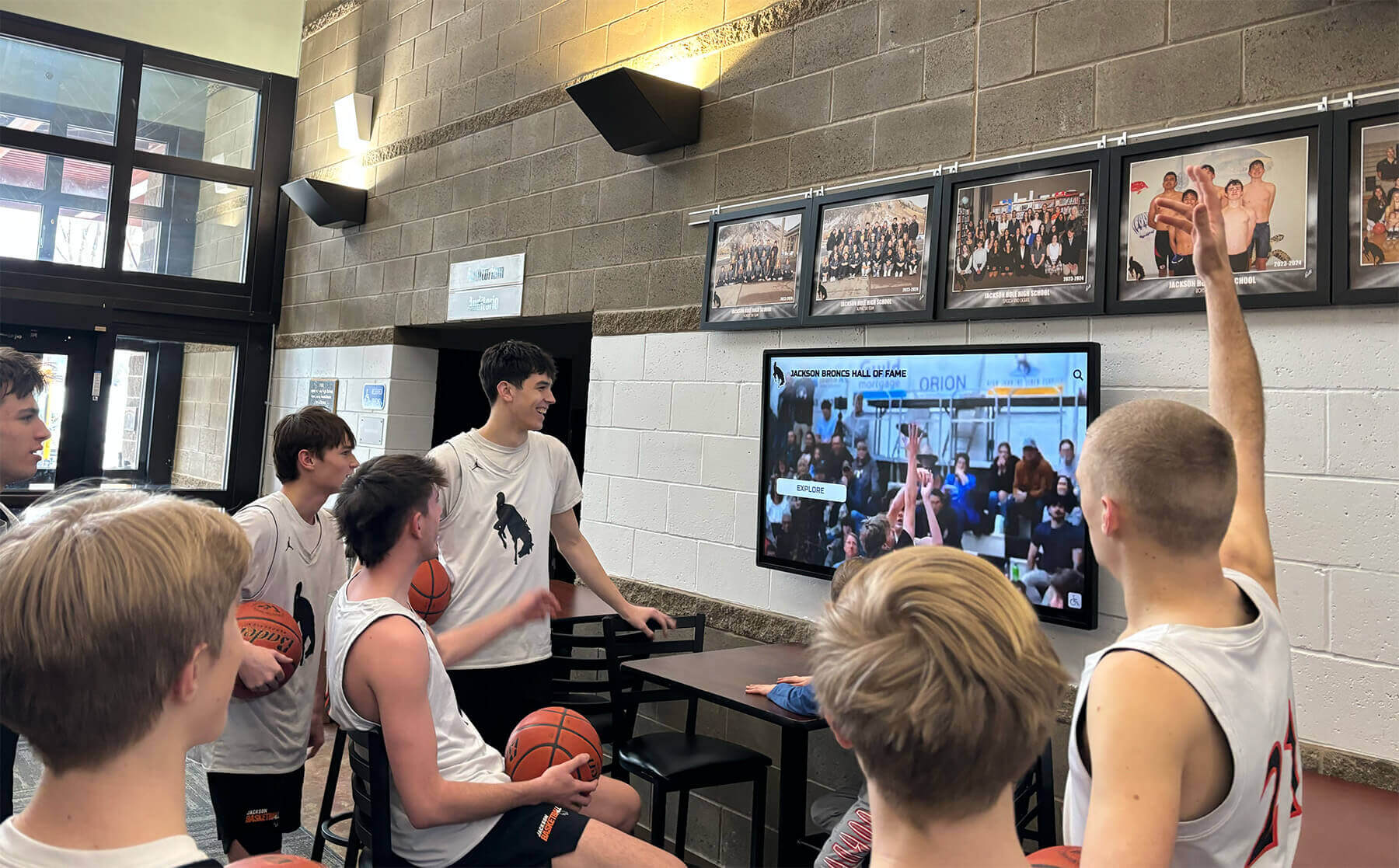
Recognition displays create opportunities for students to explore club leadership and accomplishments
Tournament Director Some clubs designate tournament directors focused specifically on competitive aspects including organizing internal club tournaments and ladder systems, coordinating registration for external tournaments and competitions, managing rating records and competitive achievements, arranging transportation and logistics for away tournaments, and maintaining relationships with regional tournament organizers. This specialized role suits students passionate about competitive chess while developing event management skills.
Communications Officer Larger clubs may include communications officers managing outreach including maintaining club social media presence and promotional materials, creating announcements for school communications channels, recruiting new members through presentations and demonstrations, documenting club activities through photos and writeups, and building relationships with school media like newspapers and yearbook. Marketing and communication skills developed through this role translate directly to college and career contexts.
Chess Club Leadership Development Benefits
Student officers gain substantial transferable skills through chess club leadership that deserve systematic recognition and documentation for college applications and future opportunities.
Organizational and Management Skills Chess club officers develop practical management capabilities including coordinating schedules across diverse member availability, managing budgets and financial resources responsibly, delegating responsibilities and following through on commitments, balancing competing priorities and timeline pressures, and adapting plans when circumstances change unexpectedly.
Communication and Interpersonal Skills Leadership positions require sophisticated communication including facilitating meetings ensuring all voices receive consideration, resolving conflicts between members with different competitive philosophies, presenting to school administrators explaining club needs and accomplishments, mentoring beginning players developing patience and teaching ability, and representing the club positively to external organizations.
Strategic Thinking and Problem Solving Beyond chess gameplay itself, leadership develops broader strategic capabilities including identifying challenges and developing actionable solutions, anticipating potential problems and implementing preventive measures, analyzing data about participation and engagement to improve programs, making decisions with incomplete information under time constraints, and thinking systemically about how different aspects of club operations interconnect.
These leadership development outcomes justify substantial recognition demonstrating that chess club officer positions provide genuine preparation for college leadership and professional success across diverse fields.
The Limitations of Traditional Chess Club Recognition
Traditional approaches to celebrating chess club leadership face inherent constraints that limit their effectiveness in honoring officers appropriately while building broader awareness of club accomplishments.
Minimal Visibility in School Communities
Chess clubs typically operate with far less visibility than athletic teams or performing arts programs, even when membership numbers and competitive achievements compare favorably.
Limited Recognition Touchpoints Most chess club recognition consists of brief yearbook mentions listing current officers by name with minimal context, occasional morning announcements about tournament results reaching limited audiences, informal appreciation during club meetings invisible beyond members, and end-of-year award ceremonies where chess receives minimal time compared to athletics.
This limited visibility fails to communicate the significant organizational effort officers invest or the genuine leadership skills they develop through their roles. Meanwhile, students who might consider joining chess club or pursuing leadership positions never encounter evidence of chess club prestige or accomplishment.
Competitive Achievement Undervaluation Schools with successful competitive chess programs often fail to celebrate tournament achievements comparably to athletic competitions. State championship victories, regional tournament wins, and individual player achievements may receive brief mention rather than prominent recognition given to equivalent athletic accomplishments.
This disparity communicates—often unintentionally—that intellectual competitions matter less than physical ones, potentially discouraging academically-oriented students from investing in competitive pursuits or leadership development within chess contexts.
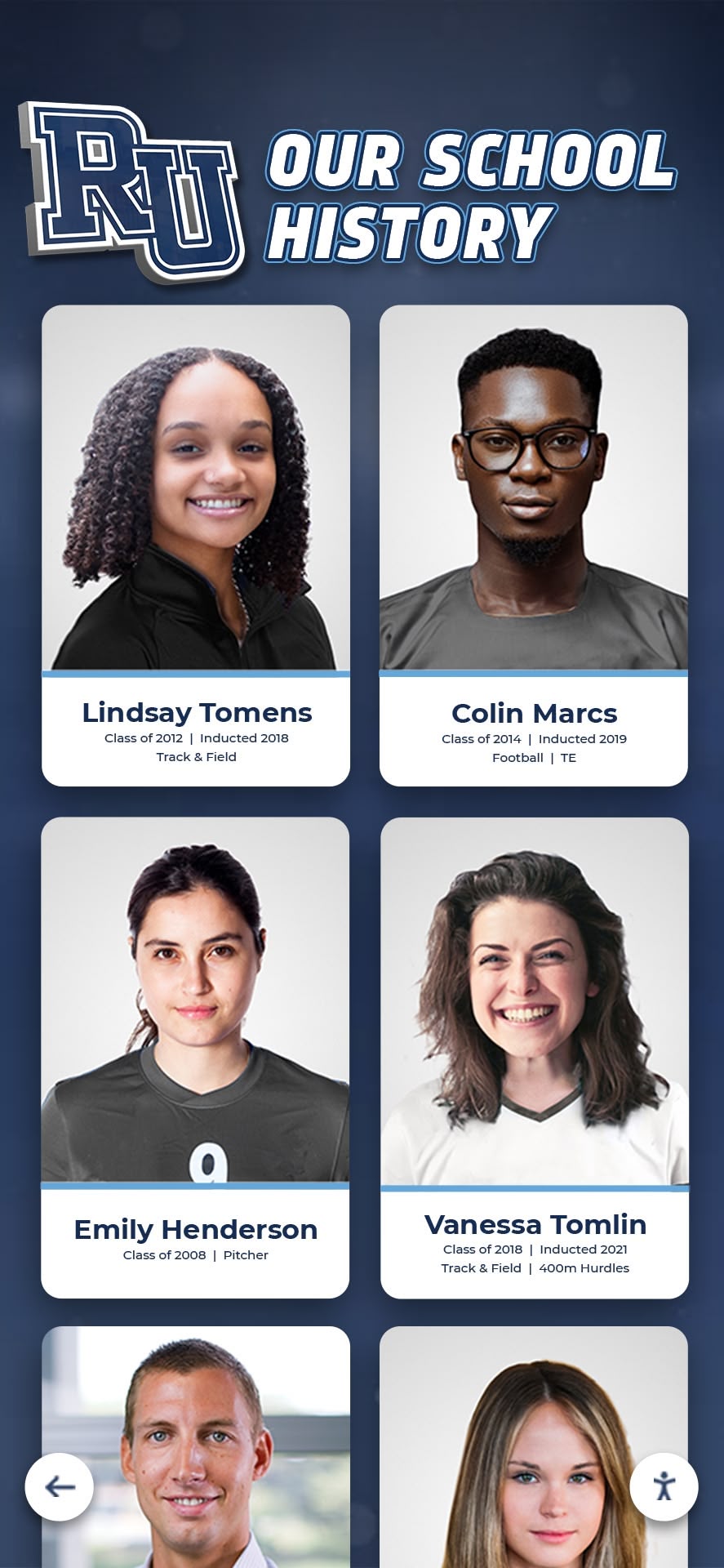
Systematic recognition honors leadership across all student organizations, not just traditional athletics
Missing Historical Context and Tradition
Without systematic recognition, chess club history disappears as officers graduate and institutional memory fades, preventing current students from connecting to club tradition and understanding their place in longer organizational narratives.
Lost Leadership Legacy Schools rarely maintain comprehensive records of chess club presidents and executive team members across years, resulting in graduates whose leadership contributions become invisible to future students, lost connection between current officers and alumni who led successful programs, missing opportunities for mentorship connecting experienced alumni with current leaders, and inability to demonstrate club longevity and sustained tradition.
Preserving leadership history creates continuity and tradition comparable to athletic team record books, demonstrating that chess club represents an enduring institutional program worthy of sustained commitment.
Undocumented Competitive Achievement Similarly, competitive accomplishments often go undocumented including tournament championship victories by team and individual players, progression of individual players from beginning to advanced competition, state and regional ranking achievements, significant wins against strong opponents or programs, and milestone achievements like breaking rating barriers.
This lack of documentation prevents schools from demonstrating program quality, makes it difficult for students to track their competitive development, and loses powerful stories about achievement through dedicated practice and strategic thinking.
Explore comprehensive approaches to club and organization recognition that address traditional limitations.
Comprehensive Recognition Programs for Chess Club Leadership
Modern recognition approaches systematically celebrate chess club officers while creating visibility that strengthens programs and inspires continued excellence.
Multi-Dimensional Officer Recognition
Effective recognition honors not just position titles but specific contributions and leadership achievements demonstrating what officers actually accomplished during their tenure.
Leadership Position Recognition Basic recognition documents officer roles and tenure including officer names, positions, and years served, providing historical record of executive team composition, photographs capturing officers together as leadership teams, biographical information about background and chess experience, and statements of leadership philosophy and club goals.
This fundamental recognition ensures every officer receives acknowledgment comparable to team captains in athletic programs.
Specific Achievement Highlighting Moving beyond titles, recognition should celebrate concrete accomplishments including successful initiatives officers launched or improved, tournament results achieved during their leadership, membership growth or engagement increases, fundraising successes supporting competitive opportunities, and community partnerships or outreach programs developed.
Specific achievement recognition communicates that chess club leadership involves genuine organizational accomplishment, not merely holding titles without substantive contribution.
Leadership Development Documentation Recognition can explicitly connect chess club experience to broader leadership skill development including organizational management through coordinating complex logistics, financial literacy through budget management and fundraising, communication skills through member engagement and external representation, mentorship experience through teaching and supporting developing players, and strategic planning through setting club direction and priorities.
This documentation provides concrete content for college application essays, scholarship applications, and interview discussions where students articulate leadership development and transferable skills.
Comprehensive Membership Recognition
While officers deserve special recognition, comprehensive programs also celebrate active members whose participation and competitive achievement contribute to club success.
Active Member Acknowledgment All regular participants deserve recognition including members who attend consistently throughout the year, participants in club tournaments and rated play, students who support club activities even without formal positions, mentors who help beginning players develop, and members demonstrating sportsmanship and club values.
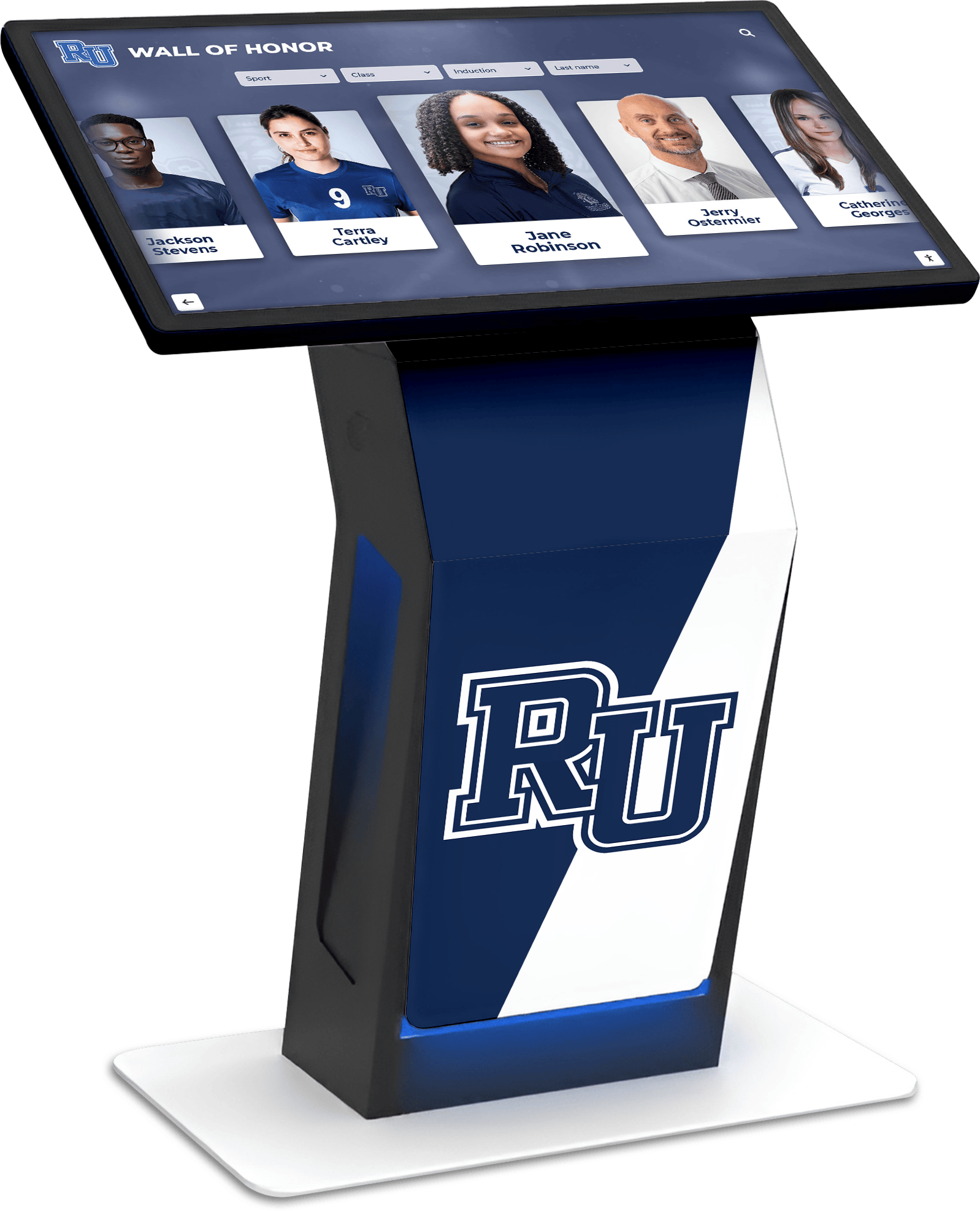
Digital systems accommodate unlimited recognition of officers and members without space constraints
This inclusive recognition ensures chess club participation feels valued and visible, encouraging sustained engagement and creating pathways to future leadership.
Competitive Achievement Celebration Individual and team competitive accomplishments deserve systematic recognition including tournament victories at club, school, regional, and state levels, rating milestones and competitive progression, wins against highly-rated opponents demonstrating skill development, championship performances in specific tournaments or competitions, and selection for state or regional representative teams.
Celebrating competitive achievement comparable to athletic recognition demonstrates that intellectual competitions matter and merit institutional celebration.
Improvement and Development Recognition Recognizing growth alongside absolute achievement creates inclusive recognition including most improved players showing significant rating gains, students who progress from beginners to competitive players, dedication awards for consistent practice and study, breakthrough performances exceeding previous results, and milestones like first tournament victories or rating achievements.
This growth-oriented recognition ensures opportunities exist for students at all skill levels, not just top competitors.
Learn about comprehensive approaches to student club recognition celebrating diverse organizational achievements.
Digital Recognition Solutions for Chess Clubs
Traditional physical recognition approaches—plaques, bulletin boards, trophy cases—face space limitations and update challenges that digital platforms overcome while creating more engaging, comprehensive celebration.
Unlimited Recognition Capacity
Solutions like Rocket Alumni Solutions eliminate space constraints that force selective recognition, enabling comprehensive celebration of all officers and members across current and historical years.
Complete Officer Recognition Digital platforms can recognize every chess club president, executive team member, and officer across the program’s history including comprehensive profiles for all officers with photos and position descriptions, documentation of specific accomplishments and achievements during tenure, preservation of club records and milestones from each leadership team, and historical archives connecting current members to club tradition.
This unlimited capacity ensures no officer’s contribution gets lost due to physical space limitations, preserving complete institutional history.
Extensive Member Celebration Beyond officers, digital recognition accommodates all active participants including profiles for regular members showing participation and involvement, competitive achievement documentation for tournament players, recognition of improvement and skill development milestones, special awards like sportsmanship or dedication honors, and team accomplishments from competitive events.
Schools can recognize hundreds of chess club participants across years without the constraints that physical displays impose.
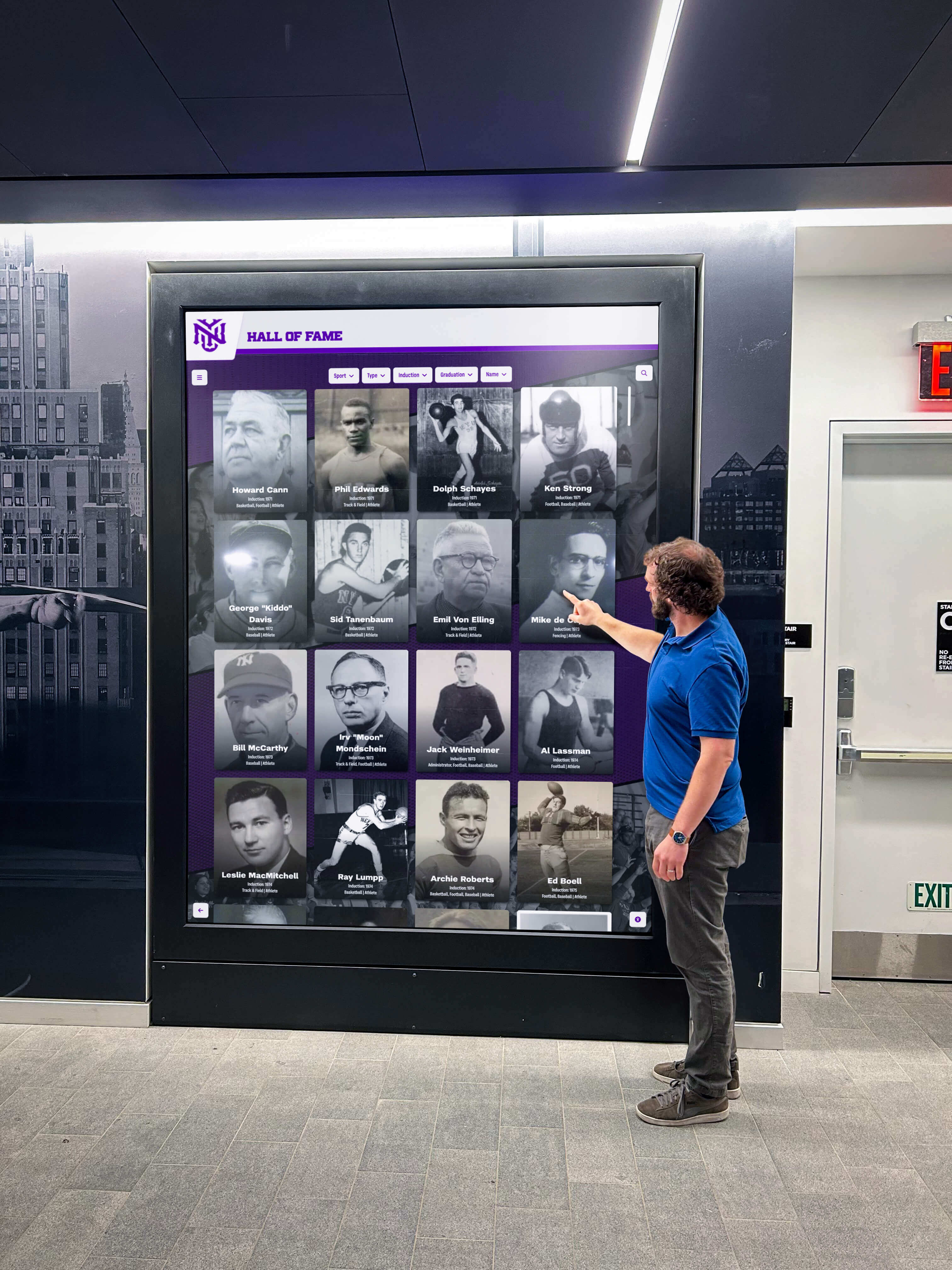
Interactive displays enable families and visitors to explore chess club accomplishments and leadership
Interactive Exploration and Engagement
Modern touchscreen systems transform passive viewing into active engagement, creating discovery experiences that traditional static displays cannot provide.
Search and Discovery Features Intuitive interfaces enable viewers to explore recognition content including name search helping students find themselves and friends, position filtering showing all presidents or officers across years, year-based navigation exploring club history chronologically, achievement-based discovery finding tournament winners or rating milestones, and curated highlights featuring exceptional accomplishments or interesting stories.
These interactive capabilities encourage extended engagement compared to static bulletin boards that receive brief glances.
Rich Multimedia Content Digital platforms support comprehensive content including high-quality photographs of officers and members, tournament results documentation with round-by-round records, game recordings of significant victories and interesting positions, video content from tournaments or club events, officer statements about club goals and accomplishments, and alumni reflections about chess club impact on their development.
This multimedia approach tells complete stories about chess club experience and leadership, creating recognition that feels meaningful rather than perfunctory.
Easy Updates and Maintenance Cloud-based management systems enable efficient recognition maintenance including remote updates from any internet-connected device, scheduled publishing for end-of-year recognition or new officer announcements, bulk import capabilities for historical data, template-based content creation ensuring consistency, and role-based permissions allowing appropriate staff and student access.
Schools report 80-90% reduction in time spent maintaining chess club recognition after implementing digital systems compared to physical bulletin board updates.
Web-Based Recognition Extensions
Recognition should extend beyond physical campus displays to create accessibility for families, alumni, and broader communities.
Online Recognition Portals Web-accessible platforms amplify recognition impact including global access enabling families and alumni anywhere to view achievements, mobile-responsive design ensuring quality experiences on all devices, social sharing capabilities letting students celebrate accomplishments, integration with school websites maintaining consistent branding, and search engine visibility potentially attracting prospective students and families.
Alumni Connection Opportunities Online recognition creates engagement with chess club alumni including ability for graduates to find their own officer records and memories, connection between current officers and alumni who led successful programs, mentorship opportunities pairing experienced alumni with current leaders, networking among chess club alumni across graduation years, and demonstration of long-term impact on alumni careers and development.
These digital extensions create recognition reach impossible with campus-only physical displays.
Integrating Chess Club with Comprehensive Student Recognition
Chess club recognition proves most effective when positioned within broader systems celebrating diverse student leadership and achievement across all clubs, organizations, and activities.
Club and Organization Recognition Frameworks
Systematic approaches honor leadership across all student organizations, not just traditionally high-profile groups.
Unified Student Organization Leadership Recognition Comprehensive platforms recognize student leaders from academic honor societies like National Honor Society and subject-specific organizations, performing arts groups including theater, choir, and instrumental ensembles, service organizations like Key Club and volunteer programs, cultural and identity-based clubs celebrating diverse communities, special interest organizations from robotics to environmental clubs, and competitive academic teams including debate, Model UN, and academic competitions.
This unified approach demonstrates institutional commitment to honoring all forms of student leadership rather than privileging certain activities over others.
After-School Activity Celebration Recognition should celebrate the full spectrum of after-school engagement including club participation and leadership development, competitive achievements across intellectual pursuits, community service and volunteer contributions, creative and artistic accomplishments, and sustained commitment demonstrating dedication over time.
By positioning chess club recognition within comprehensive celebration of after-school activities, schools communicate that diverse forms of engagement all contribute to well-rounded development.
Learn about inclusive approaches to student achievement recognition across diverse activities.
Connecting Recognition to College and Career Readiness
Systematic chess club recognition should explicitly highlight leadership development benefits supporting college applications and future success.
College Application Enhancement Digital recognition platforms create accessible documentation for college applications including comprehensive leadership portfolios showing sustained commitment, specific achievement descriptions providing essay material, downloadable content for college application activity sections, web links enabling admissions officers to explore accomplishments, and quantifiable metrics demonstrating organizational impact.
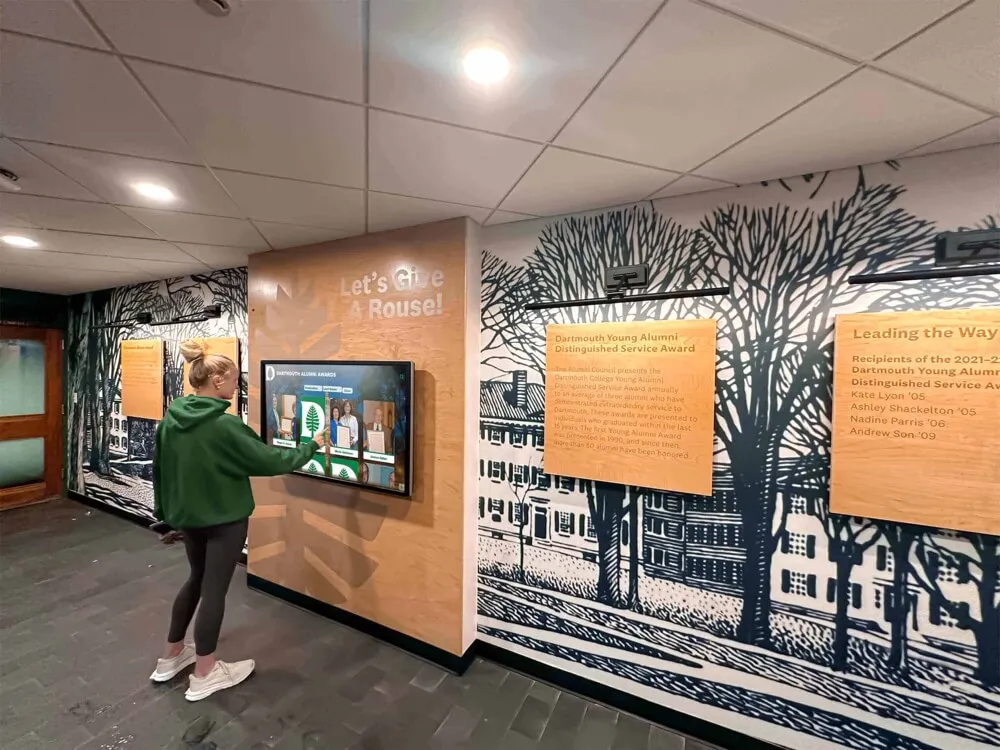
Prominent recognition placement ensures chess club receives visibility comparable to athletic achievements
Leadership Skill Documentation Recognition should explicitly connect chess club experience to transferable skills including organizational management through event coordination, financial literacy through budget and fundraising responsibility, communication capabilities through member engagement and external representation, strategic thinking developed through both gameplay and organizational planning, and mentorship experience supporting developing players.
This explicit skill documentation helps students articulate leadership development in college interviews, scholarship applications, and future professional contexts.
Alumni Success Stories Recognition platforms can showcase chess club alumni career outcomes including professional success across diverse fields, college leadership and continued competitive play, career paths leveraging strategic thinking and analytical skills, alumni returning as mentors or speakers, and long-term friendships and networks originating in chess club.
These success stories demonstrate concrete benefits of chess club participation and leadership, motivating current students while honoring alumni accomplishments.
Implementing Chess Club Recognition Programs
Successful implementation requires systematic planning addressing content development, stakeholder engagement, and sustainable management practices.
Planning and Content Development
Assessment and Goal Setting Schools should begin with systematic evaluation including current recognition practices for chess club and other student organizations, stakeholder input from officers, members, advisors, and administrators, physical and digital resources available for implementation, similar recognition programs at peer schools for benchmarking, and specific goals for recognition program impact and reach.
Content Collection Strategies Effective recognition requires comprehensive information gathering including current officer and member photos and biographical information, historical records from yearbooks, archives, and advisor files, tournament results and competitive achievement documentation, club activity documentation from meetings, events, and special programs, and officer and alumni testimonials about chess club impact.
While historical reconstruction takes effort, schools report finding surprising amounts of information in yearbooks, advisor files, and alumni memory.
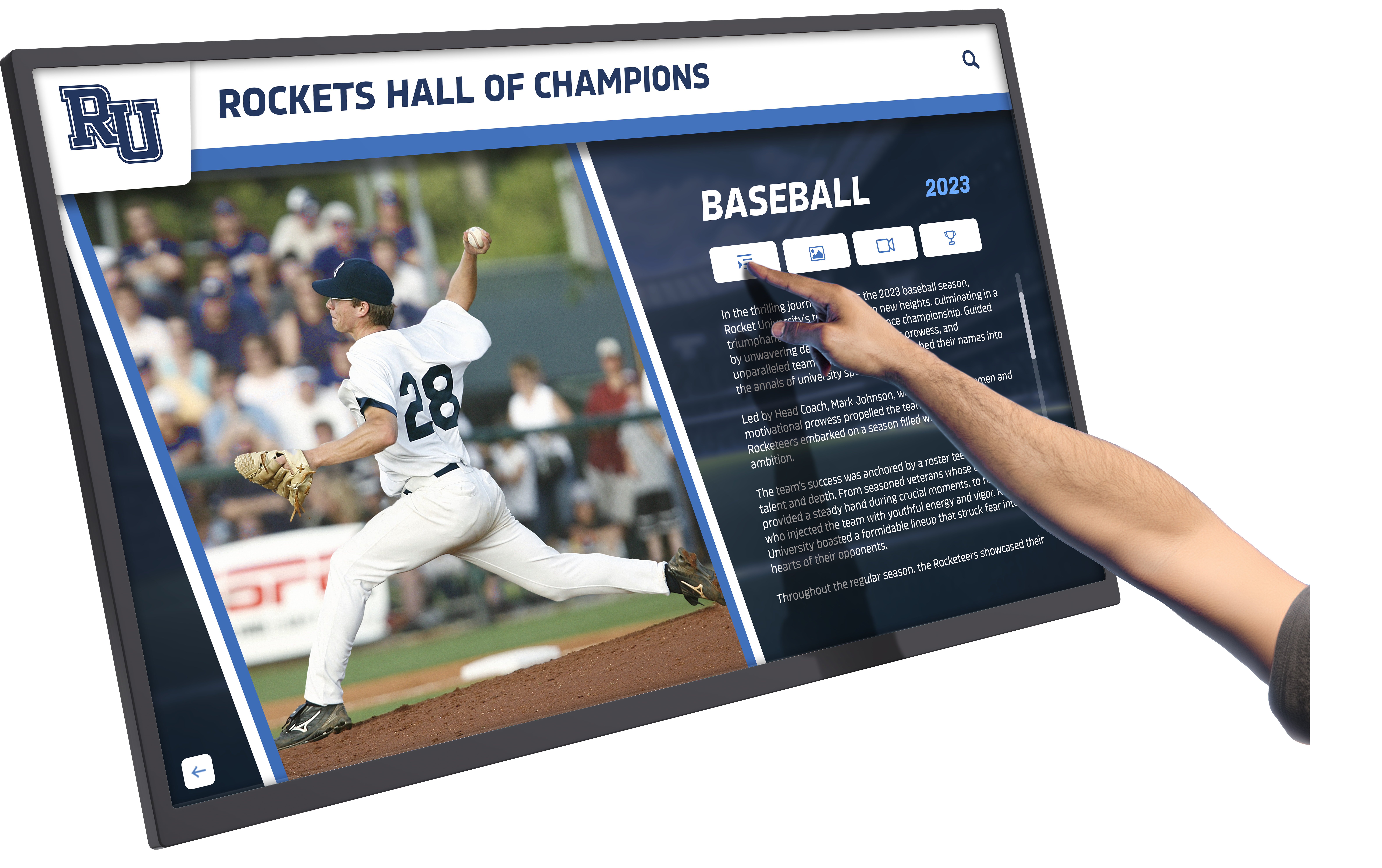
User-friendly interfaces enable students and staff to explore recognition content intuitively
Technology Selection and Implementation
Platform Evaluation Criteria Schools implementing digital chess club recognition should evaluate solutions considering ease of content management and updates, capacity for comprehensive recognition without space limits, interactive features enabling engaging exploration, web-based access extending recognition beyond campus, mobile responsiveness for smartphone and tablet access, integration capabilities with school websites and systems, cost including initial implementation and ongoing subscriptions, and support and training provided by vendors.
Purpose-Built Recognition Solutions Platforms like Rocket Alumni Solutions specifically designed for academic and extracurricular recognition typically offer templates optimized for student profiles and achievements, unlimited capacity accommodating comprehensive historical archives, intuitive content management requiring no technical expertise, responsive web design ensuring quality across all devices, analytics demonstrating engagement and program effectiveness, ongoing platform development adding relevant features, and dedicated support teams understanding educational institution needs.
Purpose-built solutions typically deliver superior experiences compared to generic digital signage systems adapted for recognition purposes, justifying investment through better functionality and easier long-term management.
Stakeholder Engagement and Communication
Building Support for Recognition Investment Successful implementation requires stakeholder buy-in including administrative approval recognizing recognition’s motivational impact, advisor enthusiasm for documentation and ongoing updates, student officer engagement in content development and promotion, parent community awareness of recognition’s college application benefits, and alumni interest in connecting with current program.
Launch and Promotion Strategies Recognition program launches benefit from strategic communication including ceremony or event unveiling recognition system, email announcements to families about recognition availability, social media promotion celebrating featured officers and members, integration with club meetings showing members their recognition, morning announcements building school-wide awareness, and press outreach to local media highlighting innovation.
Strong launch communication ensures maximum visibility and engagement from inception.
Best Practices for Sustainable Chess Club Recognition
Beyond initial implementation, certain approaches ensure recognition remains meaningful, current, and effective long-term.
Regular Updates and Maintenance
Timely Recognition of Current Officers Prompt acknowledgment matters significantly including updating recognition within weeks of officer elections, photographing new officers early in their tenure, adding achievement documentation throughout the year as accomplishments occur, featuring officer spotlights highlighting specific contributions, and celebrating end-of-year achievements promptly after conclusion.
Regular updates demonstrate that recognition is active and valued, not an abandoned system receiving only occasional attention.
Historical Content Expansion Ongoing recognition programs can systematically add historical content including annual addition of previous years’ officer information, soliciting alumni memory and photographs for early club history, documenting decade-by-decade club development and milestones, featuring historical anniversary recognition for 25th, 50th anniversaries, and preserving club tradition through storytelling and documentation.
This historical expansion creates increasingly valuable archives connecting current members to institutional tradition.
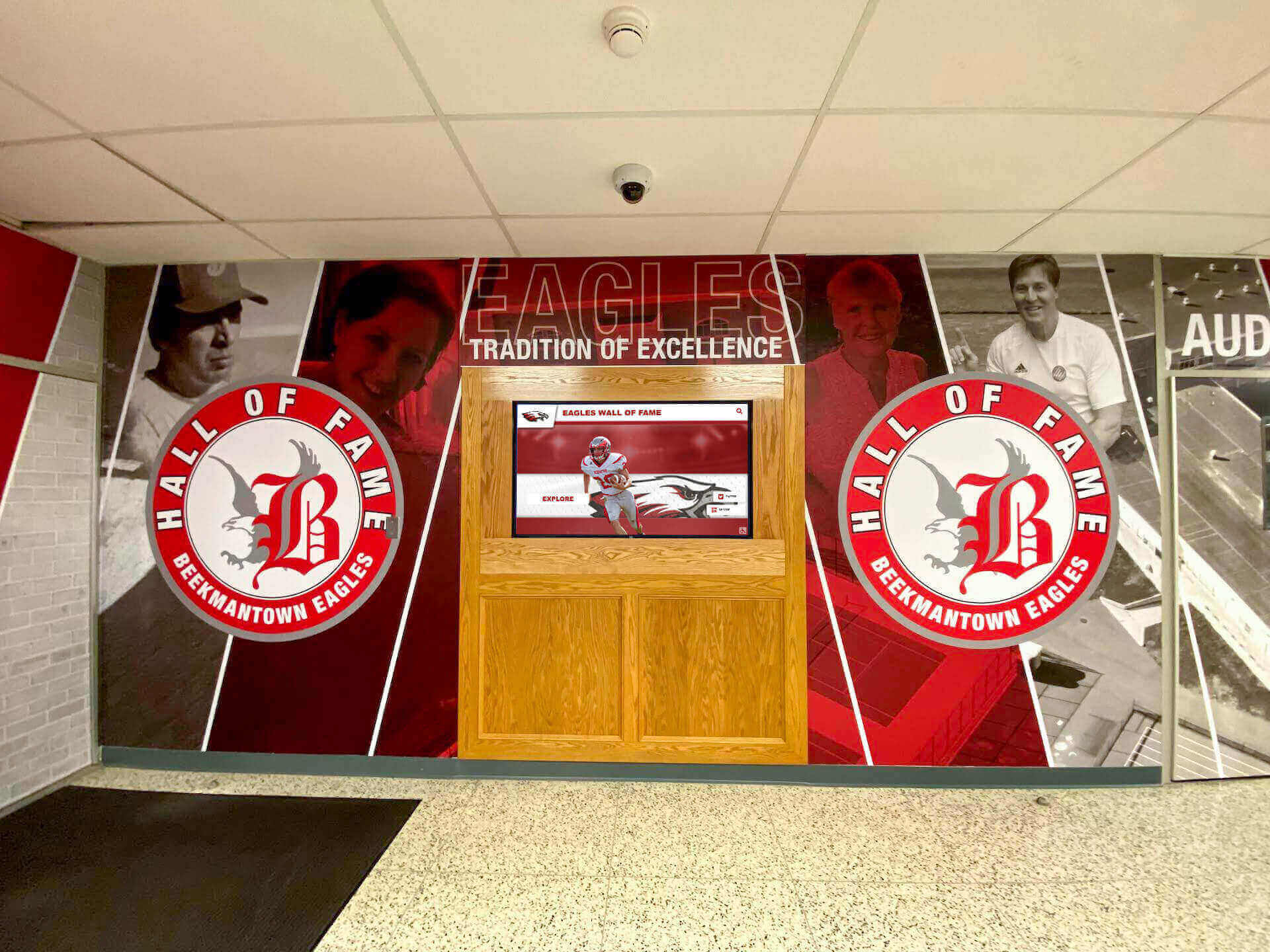
Prominent recognition installations signal institutional commitment to celebrating student achievement across all activities
Equity and Inclusion in Recognition
Accessible Recognition Opportunities Recognition programs should ensure all students have opportunities to be celebrated including officer positions accessible to students at various skill levels, recognition of improvement alongside absolute achievement, celebration of contributions beyond competitive performance, acknowledgment of behind-the-scenes work supporting club operations, and inclusive language welcoming all interested students.
Equitable recognition creates inclusive cultures where diverse students feel valued and motivated to participate.
Removing Barriers to Participation Chess club recognition connects to ensuring participation accessibility including equipment availability for students who cannot purchase sets, fee assistance for tournament entry and travel costs, scheduling accommodating students with work or family obligations, transportation support for away tournaments and competitions, and welcoming culture for beginners and developing players.
Recognition of diverse participants signals that chess club values inclusion, potentially attracting students who might otherwise assume the club serves only serious competitors.
Connecting to Academic Recognition Programs
Chess club recognition integrates naturally with broader academic excellence celebration including recognition of academic honor society members who also lead chess club, celebration of students balancing competitive chess with rigorous academics, highlighting critical thinking and problem-solving skill development, demonstrating intellectual rigor beyond traditional classroom assessment, and positioning chess as complement to comprehensive educational experience.
This integration reinforces that chess represents intellectual pursuit worthy of academic recognition comparable to subject-specific honors.
Explore comprehensive approaches to academic recognition programs that can incorporate chess club achievement.
Measuring Chess Club Recognition Impact
Regular assessment ensures recognition programs achieve intended goals while identifying improvement opportunities.
Quantitative Impact Metrics
Recognition Coverage and Completeness Track recognition program comprehensiveness including percentage of officers and members with recognition profiles, historical coverage depth showing years or decades documented, profile completeness with photos, achievements, and biographical information, update frequency showing how recently content was added, and user engagement metrics from digital displays and web platforms.
Club Participation and Growth Assess recognition’s relationship to club health including membership trends before and after recognition implementation, officer candidate numbers indicating leadership interest, tournament participation rates showing competitive engagement, new member retention through first year, and alumni engagement with current club.
College Application Usage Document recognition’s practical value including student reports of using recognition in college applications, college admissions references to chess club accomplishments, scholarship applications leveraging chess club leadership, college interview preparation using recognition documentation, and alumni feedback about recognition’s role in their applications.
Qualitative Assessment
Stakeholder Feedback Gather perspectives from multiple groups including officer assessment of recognition’s motivational impact, member perception of whether recognition makes club feel valued, parent observations about student pride and engagement, advisor evaluation of recognition program manageability, administrator observations about school culture impacts, and alumni reflection on recognition connecting them to current program.
Cultural Indicators Observe broader impacts including changes in how students discuss chess club participation, prospective student interest during tours and open houses, family comments about club visibility and prestige, community awareness of chess program quality, and peer respect for chess club as valuable activity.
Regular assessment enables continuous improvement ensuring recognition programs remain effective and aligned with club and institutional goals.
Conclusion: Honoring Strategic Thinking and Student Leadership
Chess club presidents and executive team members demonstrate genuine leadership requiring sophisticated organizational skills, strategic thinking, interpersonal communication, financial management, and sustained commitment—qualities predicting success in college and career contexts across all fields. Students who coordinate tournaments, manage budgets, recruit and mentor members, and build inclusive communities develop capabilities that translate directly to professional leadership, yet their accomplishments often go unrecognized beyond their immediate club context.
These dedicated student leaders deserve recognition matching their accomplishment magnitude—systematic celebration that honors their specific contributions, inspires younger students to pursue chess and leadership opportunities, preserves their legacy within institutional tradition, and demonstrates that intellectual pursuits receive acknowledgment comparable to athletic achievement. Traditional recognition approaches—brief yearbook mentions, informal advisor appreciation, and occasional announcements—fail to provide the visibility and engagement contemporary students and school communities need.
Transform Your Chess Club Recognition
Discover how modern digital recognition solutions can help you celebrate every chess club president, officer, and member while building lasting pride in strategic thinking, leadership, and intellectual competition.
Explore Recognition SolutionsDigital recognition platforms transform how schools celebrate chess club excellence by eliminating space constraints that force selective recognition of only current officers, enabling rich multimedia profiles documenting specific leadership achievements and contributions, providing instant updates celebrating new officers when recognition feels most meaningful, creating interactive experiences engaging digital-native students through touchscreen exploration, and extending recognition reach beyond physical campuses through web and mobile access enabling global visibility for families, alumni, and communities.
Effective chess club recognition requires thoughtful program design ensuring comprehensive inclusion of all officers and active members across current and historical years, timely celebration adding new officer recognition promptly after elections, compelling content documenting specific achievements rather than generic position acknowledgment, explicit connection to leadership skill development helping students articulate college application value, integration with comprehensive student organization recognition celebrating all forms of leadership, and ongoing assessment demonstrating program value through measurable engagement and participation outcomes.
Whether implementing new recognition programs or enhancing existing approaches, combining systematic planning with modern recognition technology like digital displays creates acknowledgment systems that genuinely motivate students, strengthen chess club culture and recruitment, demonstrate institutional values celebrating intellectual achievement, and honor the remarkable leadership your chess club officers demonstrate through sustained dedication to building communities where strategic thinking, respectful competition, and inclusive participation flourish.
Your chess club presidents and executive team members invested countless hours coordinating tournaments, mentoring developing players, managing club finances, and building organizational infrastructure that benefits current and future members. They deserve recognition honoring their accomplishments permanently through prominent displays engaging school communities daily, inspiring current members to pursue leadership opportunities through clear role models, and preserving their legacy within your school’s proud tradition of celebrating diverse forms of student excellence and leadership development.
Ready to transform your chess club recognition? Explore comprehensive student club and organization recognition celebrating leadership across diverse activities, discover classroom project recognition honoring student achievement in after-school contexts, or learn about homecoming king and queen recognition that demonstrates systematic celebration of student accomplishment across all school traditions.




































